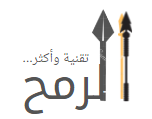The Best Way to Learn Forex Trading
If you’ve looked into trading forex online and feel it’s a potential opportunity to make money, you may be wondering about the best way to get your feet wet and learn how to get started in forex trading.
It’s important to have an understanding of the markets and methods for forex trading so that you can more effectively manage your risk, make winning trades, and set yourself up for success in your new venture.
The Importance of Getting Educated
To trade effectively, it’s critical to get a forex education. You can find a lot of useful information on forex here at The Balance. Spend some time reading up on how forex trading works, making forex trades, active forex trading times, and managing risk, for starters.
As you may learn over time, nothing beats experience, and if you want to learn forex trading, experience is the best teacher. When you first start out, you open a forex demo account and try out some demo trading. It will give you a good technical foundation on the mechanics of making forex trades and getting used to working with a specific trading platform.
A fundamental thing you may learn through experience, that no amount of books or talking to other traders can teach, is the value of closing your trade and getting out of the market when your reason for getting into a trade is invalidated.
It is very easy for traders to think the market will come back around in their favor. You would be surprised how many traders fall prey to this trap and are amazed and heartbroken when the market only presses further against the direction of their original trade.
The famous and painfully true statement from John Maynard Keynes states, “The market can stay irrational, longer than you can stay solvent.” In other words, it does little good to say the market is acting irrationally and that it will come around (meaning in the direction of your trade) because extreme moves define capital markets in the first place.
Use a Micro Forex Account
The downfall of learning forex trading with a demo account alone is that you don’t get to experience what it’s like to have your hard-earned money on the line. Trading instructors often recommend that you open a micro forex trading account or an account with a variable-trade-size broker that will allow you to make small trades.
Trading small will allow you to put some money on the line, but expose yourself to very small losses if you make mistakes or enter into losing trades. This will teach you far more than anything that you can read on a site, book, or forex trading forum and gives an entirely new angle to anything that you’ll learn while trading on a demo account.
Learn About the Currencies You Trade
To get started, you’ll need to understand what you’re trading. New traders tend to jump in and start trading anything that looks like it moves. They usually will use high leverage and trade randomly in both directions, usually leading to loss of money.
Understanding the currencies that you buy and sell makes a big difference.1 For example, a currency may be bouncing upward after a large fall and encourage inexperienced traders to “try to catch the bottom.” The currency itself may have been falling due to bad employment reports for multiple months. Would you buy something like that? Probably not, and this is an example of why you need to know and understand what you buy and sell.
Currency trading is great because you can use leverage, and there are so many different currency pairs to trade. It doesn’t mean, however, that you need to trade them all. It’s better to pick a few that have no relation and focus on those. Having only a few will make it easy to keep up with economic news for the countries involved, and you’ll be able to get a sense of the rhythm of the currencies involved.
After you’ve been trading with a small live account for a while and you have a sense of what you’re doing, it’s ok to deposit more money and increase your amount of trading capital. Knowing what you’re doing boils down to getting rid of your bad habits, understanding the market and trading strategies, and gaining some control over your emotions. If you can do that, you can be successful trading forex.
Managing Risk
Managing risk and managing your emotions go hand in hand. When people feel emotional, greedy or fearful, that is when they make mistakes with risk, and it’s what causes failure. When you look at a trading chart, approach it with a logical, objective mindset that only sees the presence or lack of potential; it shouldn’t be a matter of excitement. If pulling the trigger on a trade feels emotional in any way, you should re-evaluate why you’re not able to be objective.3
The Balance does not provide tax, investment, or financial services and advice. The information is being presented without consideration of the investment objectives, risk tolerance or financial circumstances of any specific investor and might not be suitable for all investors. Past performance is not indicative of future results. Investing involves risk including the possible loss of principal.
